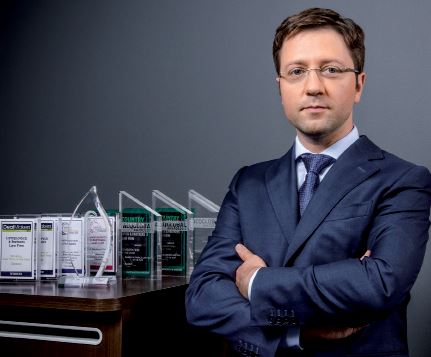CFI.co Meets Lavrynovych & Partners: Don’t Go to the Ukraine without Your Lawyer – The Protection of Business

Managing Partner: Maksym Lavrynovych
Foreign colleagues often ask what kind of corporate law services are currently being sought most by clients in the Ukraine. Today, businesses are interested in matters associated with property structuring and redistribution. Earlier this area of law was only relevant to large enterprises. Bitters wars have been fought over the state-owned property. Now, legislation on property redistribution is becoming important to medium-sized business as well. Corporate disputes between major Ukrainian business groups have moved to an entirely new level and are now taking place in the courts of London or those of other jurisdictions.
Our firm’s clients need guidance and advice on how to structure their businesses and ventures, starting with creation of a corporate structure – how to organize such a structure; through which companies this is to be done; how to register the nominal or legal owner(s); and, how to appoint, remunerate and incentivise management.
Now even large holdings, boasting a rich and long corporate history, have come to recognise the necessity and benefits of creating a vertically integrated structure. These clients will often order the due diligence of existing models and structures, and the development of new ones as well along with the optimization of management teams.
Within the frameworks of such projects, we provide extensive counselling and give valuable recommendations that will facilitate the shaping of well-adjusted management and business models. In this light, we may perhaps mention our experience in preparing companies for their IPO (Initial Public Offering) as they move from privately-owned to publically-owned. In this case, different principles and requirements apply to the structuring of a business. Even entrepreneurs who built their businesses with great care and paid close attention to the most minute of legal details will find that restructuring is called for.
However, the end result usually offers full satisfaction to all parties involved since there now is truly transparent and straightforward corporate and management structure in place that allows for efforts to be concentrated on business expansion and other dynamics. In the course of this restructuring process, already public businesses gain protection from attempts at unfriendly acquisitions.
When creating corporate structures in the Ukraine, the business owners tend to make two grave mistakes. The first one is that they often act without the benefit of proper legal support, in the erroneous assumption that structures may be improved upon and / or adjusted at a later date if the circumstances so require. The second mistake concerns the signing of agreements which then are not legally executed.
Experience has proven that in these cases, our national legislation does not guarantee a sufficient level of protection to business owners. When thing go awry, affected businesses seek legal succour – including that offered within the framework of international and bilateral agreements on the protection of investments.
Today, the Ukraine raises a significant volume of investment from Great Britain, the Netherlands, Hungary, Cyprus, and other countries. Money flows to the Ukraine through these countries for they have solid legal frameworks – such as treaties – in place that offer both investors and businesses a sense of protection from hostile actions of state authorities, corporate raiders, courts, and other unfriendly entities.
In case of a conflict, the investor has the opportunity to seek redress from, say, the International Centre for Settlement of Investment Disputes. Investors may also invoke the provisions of the Washington Convention. From a business perspective, property owned by foreign entities is awarded more protection than assets owned by nationals of the Ukraine or companies resident in the country.
To create a protected business structure without the use of trans-border ownership schemes is flat-out impossible even when foreign ownership structures are used. We can only talk about greater or lesser levels of protection of assets held in the Ukraine.
With regard to the above mentioned, medium-sized and big business may recoup the cost of creating a corporate structure that involves foreign companies by making use of tax shelters. In relation to certain aspects of asset protection, if it comes to a trial in the Ukraine, there will be a necessity to include the foreign owner in the proceedings in which case it is possible to apply the protectionism mechanisms of the Washington Convention.
However, in practice some judges manage to adjudicate even when the owners – both foreign and Ukrainian – are absent. Judges then resort to sending summons by common letters through the mail, conveniently – or not – forgetting to have postage stamps affixed. There have also been cases where summons were not mailed at all and no discernible effort was made by the courts to have the documents reach the parties involved in the dispute. Conducting business in the Ukraine without proper legal counselling is rife with peril and not something for the faint-of-heart or even those registering the strongest of pulses.
You may have an interest in also reading…
Oxford University: Asset Stranding Risks in the High-Carbon Sector
The University of Oxford launch a new research programme to help businesses and policy-makers future proof against investments in assets
Brexit: Fishing in Troubled Waters
It’s perhaps a case of having your fish and eating it too. The number of analogies that may be rallied
Nordea Asset Management: Uniting Investors to Confront Rising Menace of Methane
By Eric Pedersen, Head of Responsible Investments at Nordea Asset Management If the world has any chance of slowing the


















































































